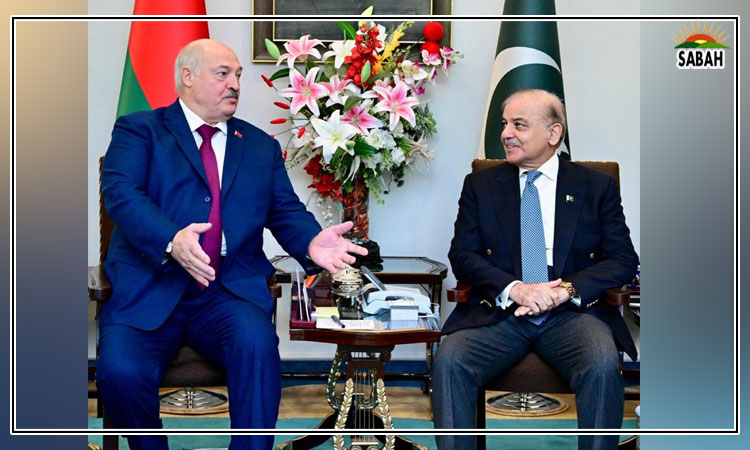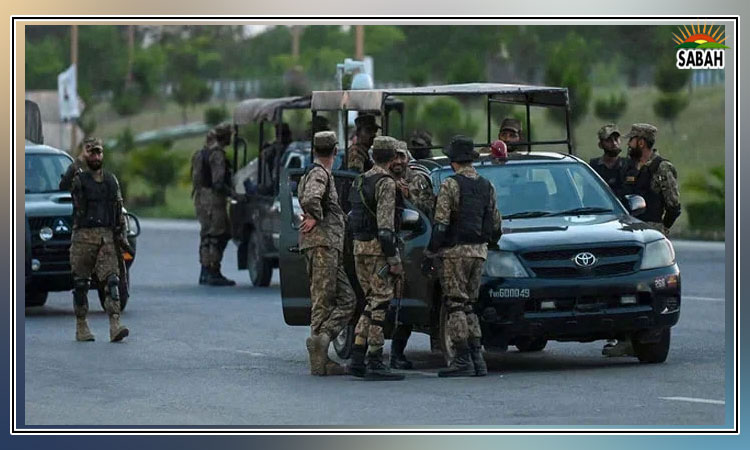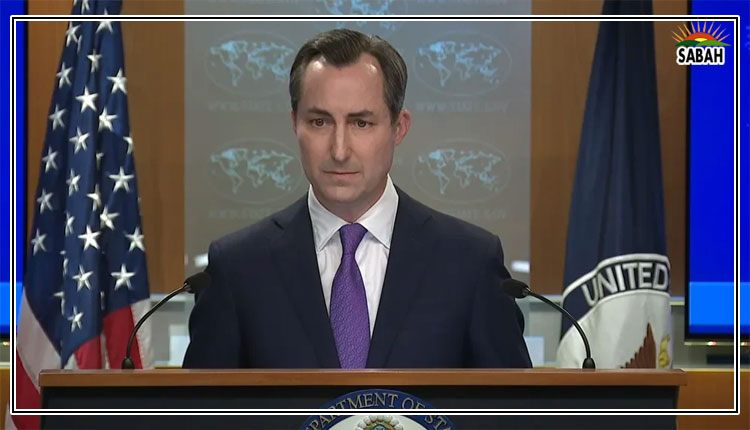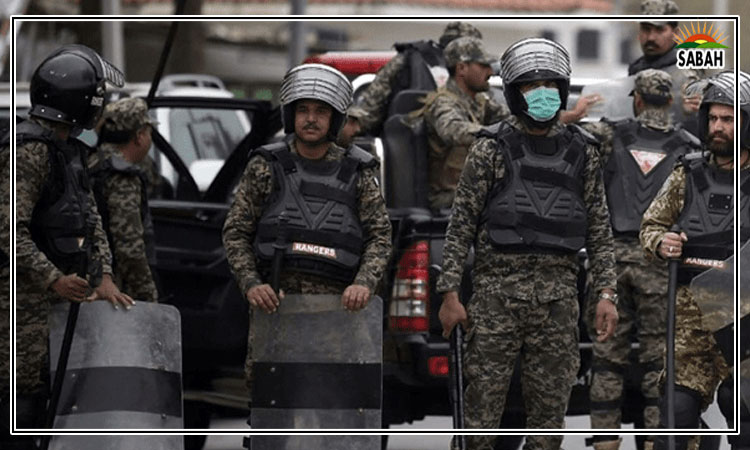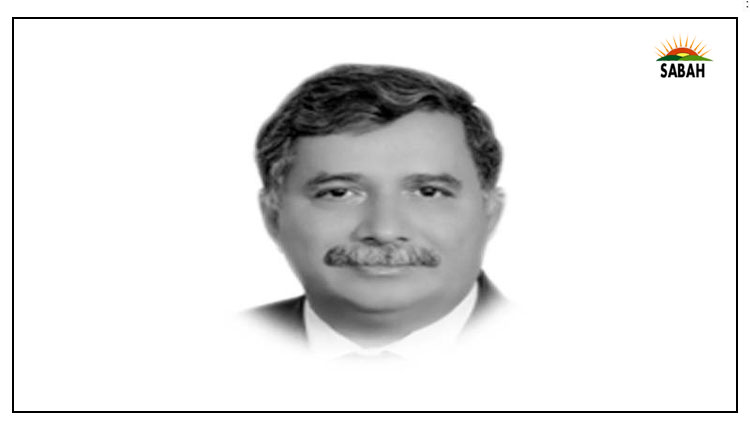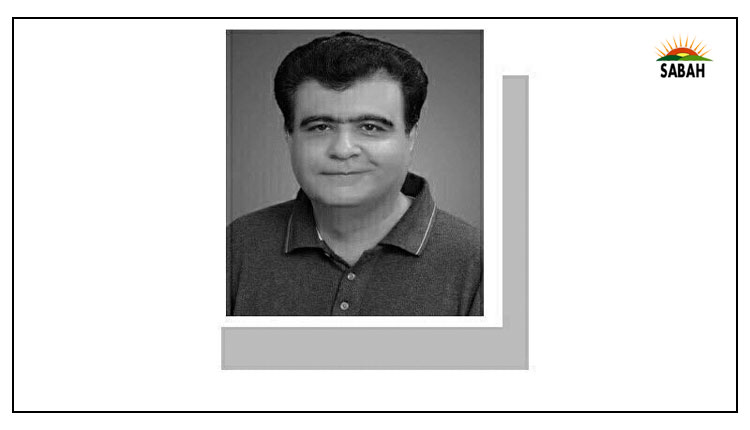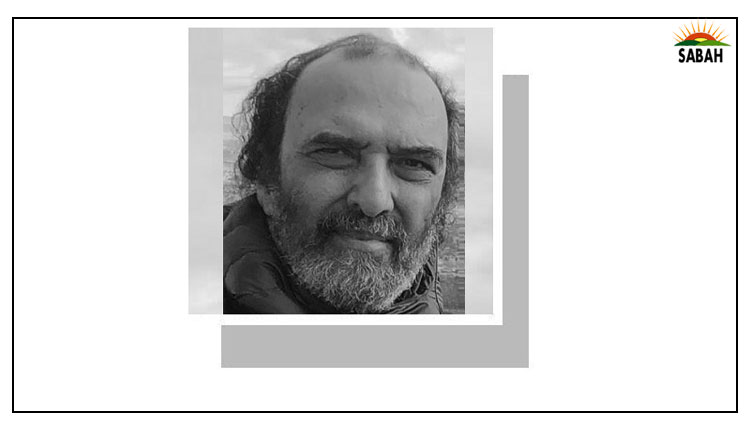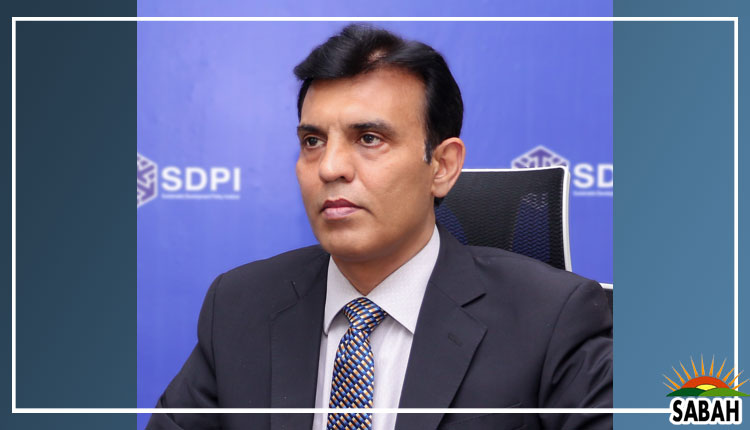Nation’s dignity should not be compromised while seeking support for flood victims’: Dr. Abid Qaiyum Suleri
ISLAMABAD, Oct 20 (SABAH): Dr. Abid Qaiyum Suleri, Executive Director, Sustainable Development Policy Institute (SDPI has said that the nation’s dignity should not be comprised when Pakistan may seek international support for the flood victims and survivors.
Dr. Abid Qaiyum Suleri was speaking at a seminar on “Poverty Eradication and Food Security” organized by SDPI here Thursday.
He further said that at least eight million people have been displaced in recent floods and only 600,000 could get camps to live therein while the rest are staying under open sky. “The displaced people have lost their shelters and livelihoods and are highly vulnerable to one-time meal and diseases,” he said adding that children need nutritious food and vaccination, as the risk of various diseases is increasing day by day. He said that the world is confronted with difficult times, and the recent reports of the World Bank and International Monetary Fund warn that “We are in a perfect storm; poverty is rising with the onset of COVID-19 and further amplified by the triple-C crisis confronting the world.” He further said that we must utilize this as an opportunity to reset, reconstruct and readdress all these inequalities and deficiencies.
Chris Kaye, the Country Director of World Food Program, said there is no dignity without food and food is fundamental to a healthy and prosperous society and it depends upon capitalizing the agricultural production capacity of the country. He said that 345 million people in 82 countries are faced with food insecurity, and the number was 282 million at the beginning of 2022 and was 135 million before COVID-19. He further said that the number of people vulnerable to famine-like situation has increased 10 times in the past five years and four million people are in Phase-IV of famine in Pakistan, which is an alarming situation. Food and Agriculture Organization purchased 320 metric tons of wheat from Pakistan to distribute in Afghanistan, which revealed a myriad of mismanagement in pricing, storage, purchasing and sales causing an unavoidable food insecurity and crisis. He further said that the poor storage conditions cause high food losses. He stressed the need to focus on rebuilding better structures to address inequalities to break the cycle of poverty and food insecurity rather than focusing entirely on infrastructure and tourism.
Farrukh Toirov, the Deputy Representative of Food and Agriculture Organisation (FAO), said that Pakistan is home to around 15-16% of food insecure people and the situation has worsened due to recent floods and pandemic. He informed the participants that 9.5 acres of agricultural land across the country is inundated by flood water and the government statistics show that about 4.5 million acres of crop has incurred extensive damage. He drew the attention of authorities towards lower wheat yield in 2022 and said that three to four million tons of wheat was harvested, but the floods caused damage to it, therefore, wheat insecurity is expected to rise. He said that the scale of food insecurity and poverty crisis is beyond the control of government and called for strong cooperation between government, international partners, academia, and think-tanks to reach comprehensive policy solutions. He emphasized to tailor farming model, practices and crop types to Pakistan’s climate and local realities besides educating farmers on the need to transform the traditional practices.
Shoaib Sultan Khan, the Chairman of Rural Support Program Network, suggested that social mobilization is central to poverty alleviation. He stressed on designing poverty eradication programmes and interventions based on comprehensive consultations with real beneficiaries and stakeholders. He emphasized on community development and engaging with women to build their capacity as this approach has demonstrated promising results.
Irshad Khan Abbassi, the Head of Innovation and Integration, Pakistan Poverty Alleviation Fund (PPAF) said that Pakistan is 92nd country on the Global Hunger Index (GH) and the ranking has been on the decline since the outbreak of COVID-19. He informed the participants that poverty ratio in Pakistan had declined from 57% to 24.3% in 2015 and has increased to 35.7% recently. He called for strong multi-dimensional long-term response beginning at community level to strengthen the capacity of vulnerable segments. He said that the food insecurity leads to poor health, high incidence of various diseases and low productivity which ultimately reflects in low national development. He emphasized upon bolstering community responses for resilience and rehabilitation in the wake of climate change and other natural and man-made disasters for poverty eradication. “Unless communities are not strengthened, no financial assistance can be helpful,” he concluded.



